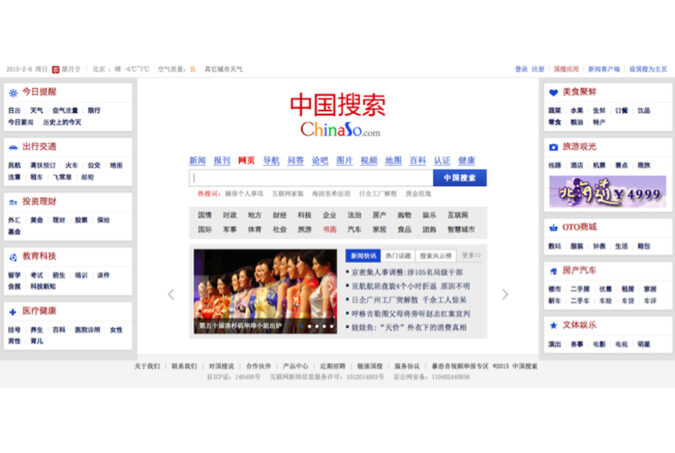
State search engine ChinaSo launched in March 2014 following indifferent performance from the previous state-run search engine Jike. Its long-term impact on China’s search market and users remains unclear.
When Jike, the Chinese state-run search engine, launched in 2011, its efforts received a mixed response. The Chinese government pulled out all the stops to promote it, including placing Deng Yaping, one of China’s most successful athletes at the helm. Jike strategically branded itself as friendly, high-tech, and patriotic to appeal to national pride, competition, and trust. It also signaled a serious attempt by a powerful authoritarian state to nationalise the Internet within its territory, and to extend its influence in the digital sphere. However, plagued by technological inferiority, management deficiencies, financial woes and user indifference, Jike failed in terms of user adoption, pointing to the limits of state influence in the marketplace. Users and critics remain skeptical of state-run search engines. While some news outlets referred to Jike as “the little search engine that couldn’t,” Chinese propaganda was busy at work rebranding, recalibrating, and reimagining its efforts. The result? The search engine formally known as Jike has now morphed into a new enterprise known as “ChinaSo”. This transformation is not new—Jike originally launched in 2010 under the name Goso, rebranding itself as Jike a year later. The March 2014 unveiling of ChinaSo was the result of the merging of the two state-run search engines Jike and Panguso. Only time will tell if this new (ad)venture will prove more fruitful. However, several things are worthy of note here. First, despite repeated trials, the Chinese state has not given up on its efforts to expand its digital toolbox and weave a ‘China Wide Web’. Rather, state media have pooled their resources to make their collective, strategic bets. The merging of Jike and Panguso into ChinaSo was backed by several state media giants, including People’s Daily, Xinhua News Agency, and China Central Television. Branded explicitly as “China Search: Authoritative National Search,” ChinaSo reinforces a sense of national identity. How does it perform? ChinaSo now ranks 225th in China and 2139th globally (Alexa.com, 8…









